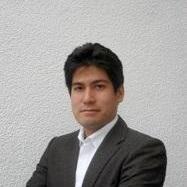Gold mining and living standards in Ghanaian households
The objective of this project is to contribute to the debate about the local economic effects of natural resources. We focus on the case gold mining in Ghana and address the following questions:
- What is the effect of mining on living conditions of regional and local communities?
- Which are the main drivers of the observed effects?
The Ghanaian case offers an excellent opportunity to study how the development of large-scale mining affects the economic conditions and opportunities of regional and local residents. We are interested on the effect on the vicinity of mines because these areas might be exposed to both the negative effects of mining (e.g. population displacement, pollution and social conflict) and the positive ones (e.g. direct employment, linkages, investment in infrastructure).
Ghana is one of the top 10 producers of gold in the world. The industry is one of the most important Ghanaian exporters and a major contributor to government revenue and foreign direct investment. Despite the success of gold mining at a macro level, there is less clear that it has brought benefits to the local population. There are concerns, for example, that large-scale gold mining may have not contributed enough to poverty reduction and instead has had negative effects such as increase of social conflict, displacement of population, and reduction of employment and agricultural activity.
In particular, we will explore the effect of gold mining on the living conditions of the local population. We will focus on the economic interactions between large and artisanal gold mines and the households located in the surrounding areas. We think that therein lies some of the answers as to how resource wealth can be transformed into better living standards. Looking at lower levels of aggregation could help us tell apart different mechanisms at play that can explain both the failure and success of natural resources to promote development.
The objective of this project is to inform the academic and policy debate in Ghana and other resource-rich developing countries that face similar concerns. For example, the recent discovery of oil in the Jubilee and Owo fields will place Ghana among the largest producers of oil in the world. Additionally, the importance of extractive industries such as mining, oil and gas, is still growing in developing countries all over Africa, Asia and Latin America. This phenomenon has the potential to become an engine of development, but also creates an important policy challenge. In particular, it is still not clear what mechanisms can foster an improvement in households’ living conditions. A better understanding of these channels will help the discussion and implications for policy.





